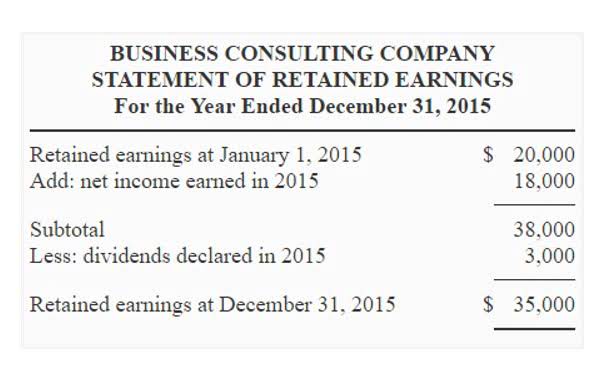Managing and Reporting Unrestricted Net Assets in Nonprofits
A Information On Bitcoin Pockets App Improvement
juli 3, 2024Разоблачение Lite Forex Форекс Лайт Отзывы о брокере и обзор мошеннической деятельности
augustus 13, 2024
Other sources of revenue include unrestricted grants/contributions and the release of temporarily restricted net assets through the satisfaction of donor or time restrictions. Whatever their source, they contribute to the overall what are unrestricted net assets financial health of the organization as part of its unrestricted net assets. When managing net assets released from restrictions, nonprofits must adhere to specific accounting practices to ensure transparency and accuracy.
Statement of Revenues, Expenditures, and Changes in Fund Balances
This can be particularly important for securing additional funding or attracting new donors, as it demonstrates prudent financial management and the ability to meet operational demands. For example, releasing a large sum of temporarily restricted net assets at the end of a fiscal year can significantly alter the organization’s financial position. It is important for financial managers to strategically plan these releases to align with the nonprofit’s financial goals and reporting periods. This strategic planning ensures that the organization can demonstrate effective use of funds while maintaining a stable financial outlook.
- These assets play a crucial role in ensuring fiscal sustainability and providing flexibility for future endeavors.
- Restricted fund balance primarily represents those resources within fund balance for which constraints exist that cannot be changed or redirected by management.
- This differentiation is crucial for demonstrating compliance with donor restrictions and for strategic planning.
- It is essential for nonprofits to clearly differentiate between assets with donor restrictions and those without, as this distinction impacts how resources can be utilized.
- Again, an assignment does not require any formal action to initiate and will most commonly represent management’s intent of use for resources included within fund balance.
Monitoring Nonprofit Performance
Effective financial management is essential for these entities to maintain trust with donors and ensure long-term sustainability. Temporarily restricted net assets, on the other hand, are subject to donor-imposed stipulations that Bookkeeping for Veterinarians must be met within a certain timeframe or for a specific purpose. This reclassification process is crucial for nonprofits to track and manage, ensuring that they remain compliant with donor intentions while also maximizing the utility of their funds. Donors may specify that their contributions be used within a certain period, such as a fiscal year or a multi-year grant cycle.

Net Assets in Financial Statements

Another animal-lover may want to be certain that a gift will be used only to rescue cats from kill shelters, and never for mundane administrative purposes. External and direct internal investment expenses are netted with investment income and should not be included in the expense analysis. If shown in one lump sum, as in the first column, where only the total for net assets without restriction is showing, it would be easy to assume that the organization was in decent shape with a positive $100,000 in net assets without restriction.
Managing Fixed Overhead Costs: Allocation, Impact, Strategies
Unrestricted net assets, temporarily restricted net assets, and permanently restricted net assets all are listed on this statement. Restricted fund balance primarily represents those resources within fund balance for which constraints exist that cannot be changed or redirected by management. Within governmental funds, equity is reported as fund balance; proprietary and fiduciary fund equity is reported as net position. Fund balance and net position are the difference between fund assets plus deferred outflows of resources and liabilities plus deferred inflows of resources reflected on the balance sheet or statement of net position. Nonprofits typically use financial ratio analysis to help them measure their overall financial health when benchmarked against similar organizations as well as past financial performance. Having months of cash on hand is important, but having unrestricted cash available is essential because it allows an organization to meet its monthly obligations such as rent, payroll and utilities.
Understanding Unrestricted Net Assets

For example, a nonprofit might observe that its unrestricted net assets have steadily increased, indicating robust operational health and flexibility. In nonprofit organizations, net assets serve as a fundamental indicator of financial health and operational capacity. Unlike for-profit entities that focus on shareholder equity, nonprofits emphasize net assets to reflect their ability to fulfill their mission and sustain their programs. This distinction underscores the importance of understanding how net assets are managed and reported within the nonprofit sector. Once an agreement is in place, nonprofits must implement robust tracking systems to monitor the use of restricted funds.
- Organizations often use these funds to support targeted initiatives, such as research projects, scholarships, or community outreach programs.
- Building and preserving a reserve can provide a financial cushion during periods of uncertainty or economic downturns.
- Nonprofit organizations in the U.S. produce a Statement of Financial Position which is equivalent to the balance sheet maintained by a business.
- This statement helps stakeholders understand the liquidity and financial flexibility of the organization.
- These assets are not bound by donor-imposed restrictions, allowing management the flexibility to allocate resources where they are most needed.
Net Assets Released from “With Donor Restrictions”

Organizations with substantial unrestricted net assets are better equipped to navigate through difficult times without resorting to drastic measures such as layoffs or program cuts. Building and preserving a reserve can provide a financial cushion during periods of uncertainty or economic downturns. This reserve should be regularly reviewed and adjusted based on the organization’s financial health and external economic conditions. Establishing clear policies for the use and replenishment of reserve funds can ensure that they are available when most needed. Permanently restricted net assets are those that donors have stipulated must be maintained in perpetuity.
Effective Date of ASU 2016-14
For instance, a donor might ledger account provide funds to support a youth education program for a period of three years. During this time, the nonprofit must track and report on the use of these funds to ensure compliance with the donor’s stipulations. Properly managing temporarily restricted net assets is essential for maintaining donor trust and ensuring that the funds are used as intended. These assets are often part of an endowment, where the principal amount is invested, and only the income generated from the investment can be used for specific purposes. For instance, a donor might establish a permanent endowment to support a nonprofit’s educational programs, with the stipulation that only the interest or dividends earned be spent.

Nonprofits often establish investment policies that outline their approach to asset allocation, risk management, and spending. Financial reporting requirements for nonprofit organizations are designed to ensure transparency, accountability, and compliance with regulatory standards. These requirements are not just about adhering to legal mandates but also about building trust with donors, stakeholders, and the public. Accurate and comprehensive financial reporting provides a clear picture of an organization’s financial health and its ability to fulfill its mission.
